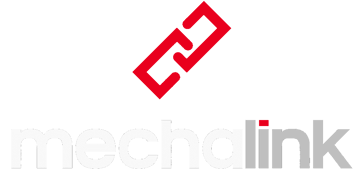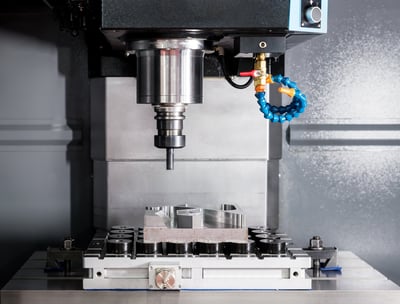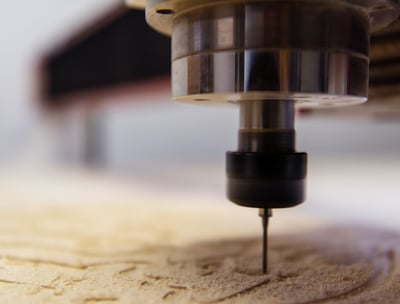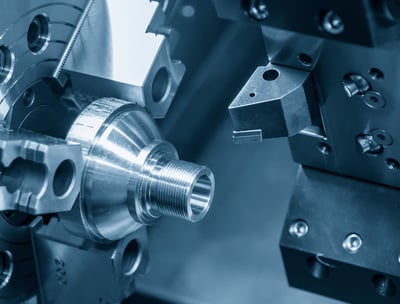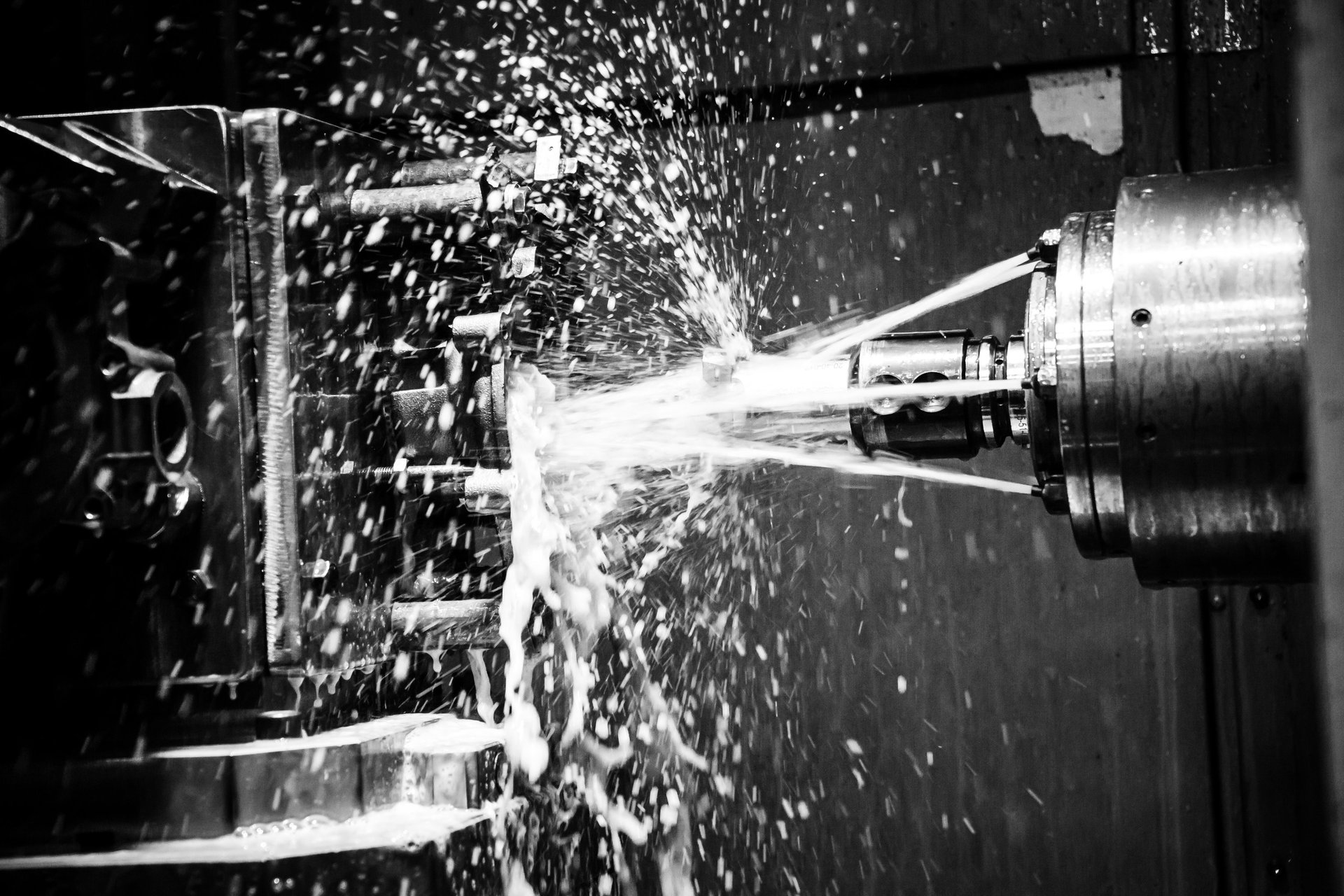
CNC Milling
Fast-Track Manufacturing in as Little as 7 Days
Materials: Aluminium, Steel, Copper, Polymers & More
Comprehensive Certifications & Inspection Reports Available
CNC Milling Capabilities
Order Your CNC Parts Now and Have Them Manufactured in Just 7 Days
Mechalink is partnered with a number of certified CNC milling partners across the globe, ensuring that whatever your production needs, we have the right shop and machinery for the job. We primarily use 3-, 4-, and 5-axis CNC machines, but 6- and 7-axis machines are also available upon request.
Mechalink provides instant pricing, fast lead times, and design-for-manufacturability feedback for your CNC milled parts.
Additionally, Mechalink can supply certifications (certificate of compliance, raw material certificates, etc.) and inspection reports (CMM, FAIR, measurement reports) upon request.
Fast and affordable parts with no MOQ.
Advantages of Machining with mechalink
Precision & Quality Control
Mechalink offers multiple tolerance options in line with ISO 2768 (standard, fine) and ISO 286 (Grades 8, 7, 6). Our QA team ensures rigorous quality assurance.


Rapid Turnaround
Utilizing the latest CNC milling machines, mechalink delivers highly accurate parts in as little as 10 days.
Custom Finishes
Choose from a range of custom finishes for metal and plastic parts, tailored to precise design requirements.
Material Selection
Select from over 30 certified metal and plastic materials. Our CNC machining services provide a broad range of material choices.
Scalability
CNC Machining is suitable for part production ranging from 1pc to 10,000.
Capabilities
Order CNC milled parts with dimensions up to X-2000mm, Y-750mm, Z-600mm.










Aluminium




Steel


Stainless Steel
CNC Milling Materials
2007 (Al-CuMgPb)
2024 (Al-Cu4Mg)
2017A (Al-Cu4Mg)
5754 (Al-Mg3)
6060 (Al-MgSi)
6061 (Al-Cu4Mg)
6082 (Al-Si1Mg)
7075 (Al-Zn6MgCu)
+ more
AISI 1018 (Low Carbon)
AISI 1020 (Low Carbon)
AISI 1040 (Medium Carbon)
AISI 1045 (Medium Carbon)
AISI 4130 (Chromoly Steel)
AISI 4140 (Chromoly Steel)
AISI 4340 (Alloy Steel)
+ more
SS 303
SS 304L
SS 316
SS 316L
SS 316Ti
+ more


C360
C260
C110
C145
+ more
Brass + Copper


Titanium


Grade 2 (Pure Titanium)
Grade 5 (Ti-6Al-4V)
+ more
Plastics
ABS
PEEK
Acrylic
Nylon 6 / PA 6
Polycarbonate
Polypropylene
PTFE / Teflon
UHMWPE
+ more
Finishing Options
Bead Blasting
Bead blasting uses fine glass beads or other abrasive media to create a smooth, matte finish on metal surfaces. It is commonly used to clean, polish, or prepare surfaces for additional coatings.
Anodising (type II)
Type II anodising forms a thin oxide layer on aluminum to improve corrosion resistance and add color. It is widely used for decorative finishes and light surface protection.
Hardcoat Anodising (type III)
Type III anodising, also known as hardcoat anodising, produces a thicker and more durable oxide layer than Type II, offering enhanced wear and corrosion resistance. It is often used in aerospace and industrial applications for parts that need extra protection.
Powder Coating
Powder coating applies a dry powder to a surface that is then heated to form a hard, durable layer. It provides excellent corrosion resistance, impact strength, and can be applied in various colors and textures.
Electropolishing
Electropolishing is an electrochemical process that removes a thin layer of metal to smooth and brighten surfaces, improving corrosion resistance and appearance. It is commonly used on stainless steel for medical, food, and high-precision applications.
Passivation
Passivation involves treating metal (typically stainless steel) with a mild oxidizing acid to remove contaminants and enhance its corrosion resistance. The process forms a thin protective oxide layer, improving durability in corrosive environments.
Zinc Coating / Galvanising
Zinc coating, or galvanising, applies a protective zinc layer to steel or iron to prevent rust and corrosion. It is commonly used for outdoor structures, fasteners, and automotive parts.
Electroless Nickel Plating
Electroless nickel plating deposits a uniform nickel-phosphorus alloy coating on a substrate without the use of electricity, providing excellent corrosion resistance and wear protection. It is commonly used for components with complex shapes and for applications requiring precise, consistent coverage.
Black Oxide
Black oxide is a chemical conversion coating that provides mild corrosion resistance and a black finish, primarily for steel and stainless steel. It improves appearance and minimizes light reflection while offering a protective layer.
Annealing
Annealing is a heat treatment process that softens metals by heating and then slowly cooling them, improving their ductility and reducing internal stresses. It is used to enhance the machinability and workability of metals like steel, copper, and aluminium.
Tempering
Tempering is a heat treatment that follows quenching to reduce the brittleness of hardened steel while maintaining strength. It is used to improve toughness and durability in tools and structural components.
Case Hardening
Case hardening involves hardening the outer surface of a metal part while keeping the inner core soft, providing wear resistance while maintaining toughness. It is often used for gears, shafts, and other high-wear mechanical components.
Review: CNC Machining
CNC milling is a computer-controlled machining process that uses a rotating cutter to remove material from a solid workpiece with precision. The two most commonly used CNC milling machines in the industry are:
3-axis machines: Operate along the X, Y, and Z axes.
5-axis machines: Include the X, Y, and Z axes, plus rotational movement around the X (A-axis) and Y (B-axis) for more complex geometry.
Contact Us Today for CNC Milling
Get in touch with us today to learn more about our CNC machining services and how we can help with your projects.
info@mechalink.com.au
